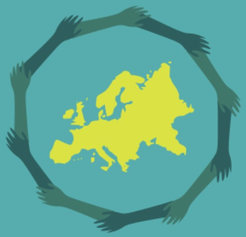European scientists recommend COVID-19 targets
Max-Planck-Institute for Dynamics and Self-Organization initiates pan-European call for a rapid reduction of COVID-19 case numbers

More than 300 leading scientists across Europe have signed the letter, including Eberhard Bodenschatz, Sandra Ciesek, Stephan Herminghaus, Christian Drosten, Clemens Füst, Lothar Wieler and the presidents of the German national academy and the research associations. “The broad European support from across all the disciplines has been overwhelming: from Virology and Epidemiology to Sociology and Economics”, says Priesemann.
Mitigating the huge impact of COVID-19 is a common goal for health, societies, and economies. And the goal is clear: To lower the case numbers across Europe in a concerted manner. “A number of countries are already lowering case numbers, and we can do so too, but this requires the participation of each and every person, and a strong political commitment”, says Viola Priesemann, leader of a Max Planck Research group at the MPIDS in Göttingen. To lower the case numbers quickly, strict lockdowns are necessary, and the more efficient they are, the sooner they can be lifted again. This was pointed out already early on during the Pandemic by Ramin Golestanian and Philip Bittihn (Link). Prof. Golestanian, who is Managing Director at the MPIDS and heads the Living Matter Physics Department, says “it was quickly clear that with low case numbers and little exchange between counties the spread of SARS-CoV-2 can be suppressed and a life with significantly less restrictions would have been possible.” While there is no convincing reason in support of having high case numbers, low case numbers would strike a good balance between keeping the society healthy and not hurting the economy. “This can be achieved, as we have shown, by taking advantage of various cooperative effects that arise when we implement local lockdowns,” said Golestanian.
The pan-European call outlines the advantages of low case numbers and the necessary commitments. It has been published recently in the journal ‘The Lancet’. More than 300 co-signatories already supported the letter, and the list is still growing. A dedicated webpage, where translations of this Correspondence are also available in many languages, supports the activity of the researchers and enables co-signing: https://www.containcovid-pan.eu.
MPIDS at the forefront of fighting COVID-19
The Max Planck Institute for Dynamics and Self-Organization has been driving the scientific quest to understand and mitigate COVID-19 spreading from the very early days. Already in March two separate publications from two MPIDS teams quantified the impact of infection spread across Germany (by Viola Priesemann and Michael Wilczek) and proposed efficient lockdown strategies (by Ramin Golestanian and Philip Bittihn). The two teams then continued with other publications on understanding the dynamics and developing mitigation strategies. Prof. Eberhard Bodenschatz, who heads the Fluid Physics, Pattern Formation and Biocomplexity Department at the MPIDS and his team investigate the role of aerosols in transmission, and mitigation strategies by face masks, ventilation and aerosol removal. Their recent Web-App (Link) can give prediction on when and how it can be safe to meet and not to catch the disease. The App is currently translated into many European and international languages. His plenary talk at the German Physical Society has received much attention in Germany (Link). Knut Heidemann and his research group could show with mathematical rigor that in view of the immune response decay common to SARS-CoV viruses, herd immunity can never be a viable strategy even for optimal mitigation strategies.
“With open borders across Europe, a single country alone cannot keep the number of COVID-19 cases low; a joint action among countries is essential. We therefore call for a strong, coordinated European response and clearly defined goals for the medium and long term”, says the call. This would greatly facilitate the control: The lower the influx of new cases from the neighboring regions, the lower the incidences locally. “If people understand that they have considerably more freedom and safety at low case numbers, and that economy also profits, then I hope we can motivate everyone, citizens and politicians, to achieve lower case numbers soon”, says Priesemann. The letter and the 300 signatories call out to the public and the politicians to join in.
